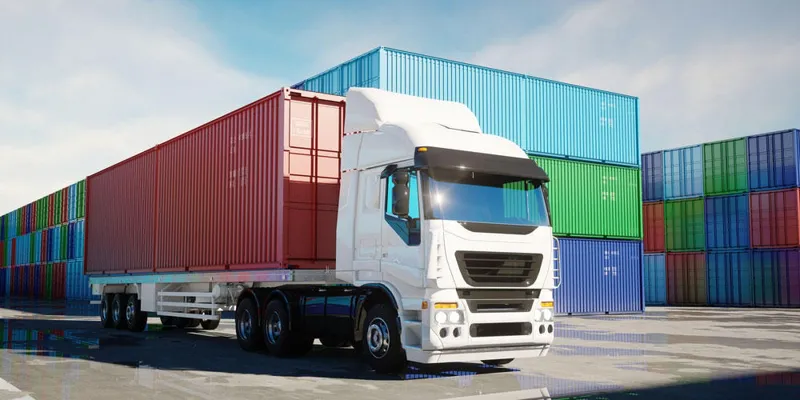Cargo Insurance During Logistics in Uzbekistan
17.07.2025

Freight logistics is a complex process involving numerous risks: damage, theft, delays, or even complete loss of goods. This is particularly relevant in Uzbekistan, where infrastructure is developing rapidly, yet certain factors — such as climate conditions, the human factor, and bureaucratic procedures — can still affect cargo safety.
Cargo insurance is a reliable way to minimize financial losses and ensure uninterrupted supply chains. In this article, we explore why insurance is essential, which risks it covers, and how to choose the optimal policy for transportation within Uzbekistan.
Why Insure Cargo During Transportation in Uzbekistan?
Uzbekistan is a country with active trade and a high volume of domestic and international shipments. Despite infrastructure improvements, cargo transportation remains associated with a variety of risks. Weather conditions, technical malfunctions, human error, and customs delays can all lead to financial loss. At the same time, the cargo itself is often of high value — so even minor damage may significantly impact the company’s budget.
Moreover, logistics companies do not always cover all types of liability, especially in force majeure situations. Even when a carrier acknowledges responsibility, compensation can take months. Insurance reduces these risks and provides faster reimbursement. It’s also important to note that for international transportation, cargo insurance is often a mandatory requirement for customs clearance.
Here are the main reasons cargo insurance is a necessity:
1. Financial protection – Compensation in case of cargo damage, theft, or loss.
2. Limiting carrier liability – Even trusted carriers may encounter force majeure events.
3. Compliance with international standards – Required for import/export operations.
4. Business continuity – Protection from unforeseen costs that could impact your budget.
Thus, insurance is not just a “safety net,” but a key risk management tool for any business dealing with physical goods. A well-structured insurance policy can prevent major losses — especially when transporting fragile or high-value cargo. This is particularly relevant for businesses that depend on timely delivery to customers or warehouses.
Main Risks Covered by Cargo Insurance
Cargo in transit can be affected by a wide range of unpredictable factors — some related to human error, others to road conditions or weather. Even experienced drivers are not immune to accidents, especially on routes through remote areas with poor infrastructure.
Additionally, risks often stem from third parties — such as theft or damage at interim storage locations. In this context, insurance becomes not just an option, but a safeguard for your business interests. A properly selected policy allows you to receive compensation even if the cargo is completely lost.
Insurance typically covers the following risks:
1. Physical damage – Due to shaking, improper fastening, or temperature fluctuations.
2. Theft or misappropriation – Especially relevant when transporting expensive goods.
3. Natural disasters – Such as dust storms, floods, or extreme temperature shifts.
4. Traffic accidents – Common on roads requiring extra caution.
5. Customs delays – In some cases, insurance compensates for downtime or penalties.
The extent of coverage depends on the specific policy. The broader the coverage, the higher the cost — but also the more robust the protection. This is particularly critical for large shipments, where potential losses may amount to millions of soums. For small businesses, cargo insurance can help maintain financial stability during unforeseen events.
Types of Cargo Insurance
When choosing an insurance policy, it’s essential to understand the available options. Some are tailored to one-time shipments, others to regular logistics operations. Coverage levels vary — from basic to all-inclusive. Companies should base their choice on their business model, cargo type, transportation frequency, and route specifics.
Pay close attention to contract details: covered risks, claim procedures, and exclusions. Not all risks are automatically included. For example, border delays or damage caused by improper temperature control may require separate clauses. Consulting a specialist can help you select the most suitable policy.
Common types of cargo insurance include:
1. Single-shipment (voyage) insurance – Ideal for one-off deliveries.
2. Annual cargo policies – Optimal for companies with regular shipments.
3. All-risk coverage – Provides maximum protection, including force majeure.
4. Named-perils coverage – Covers only risks explicitly listed in the policy (e.g., fire or accident).
Businesses engaged in ongoing logistics often save with annual policies — especially when using standard routes. Single-shipment insurance is more flexible and cost-effective for occasional deliveries. The key is to carefully evaluate the terms and avoid cutting corners on critical coverage.
How to Choose an Insurance Company in Uzbekistan
Uzbekistan’s insurance market is growing, offering a wide range of providers. However, not all offer the same level of service or reliability. Choosing the wrong company can result in denied claims or bureaucratic delays during the claims process.
It’s important to research customer reviews, compare policy terms, and consult with a logistics or legal expert. Pay attention to how the insurer handles complaints — response times, document requirements, and claim processing deadlines. Ideally, work with companies that follow international standards and partner with global insurers.
Key factors when choosing an insurer:
- Reputation and experience – Check client feedback and market presence.
- Claim handling process – Ensure clear timelines and transparent procedures.
- International partnerships – Especially important for cross-border trade.
A professional insurance provider will help you select the best policy, identify weak points in your logistics chain, and offer strategies to reduce risk. A reliable company will also readily provide policy samples and full coverage terms. This is especially crucial for small and medium-sized businesses, where every misstep can be costly.
If you work in trade, manufacturing, or distribution, insurance is not an “extra expense,” but a strategic investment in your business security. Choose a trusted insurer, review the contract terms carefully, and don’t hesitate to seek legal or logistics advice. This approach will help you avoid unpleasant surprises and strengthen your company’s resilience.
News and articles

What to do in case of an insured event in Uzbekistan
Insurance is an important financial instrument for protection against unforeseen circumstances. In Uzbekistan, as in many other countries, insured events can encompass a wide range of occurrences - from traffic accidents to property loss due to natural disasters.

What is insurance and why is it needed in Uzbekistan?
Insurance is not just paperwork or formality, but an important tool for protecting against unforeseen events. This is an agreement between you and the insurance company, under which you receive compensation for damages or financial support in case of a certain risk (such as an accident, illness, fire).

Cargo Insurance During Logistics in Uzbekistan
Freight logistics is a complex process involving numerous risks: damage, theft, delays, or even complete loss of goods. This is particularly relevant in Uzbekistan, where infrastructure is developing rapidly, yet certain factors — such as climate conditions, the human factor, and bureaucratic procedures — can still affect cargo safety.

Why an Insurance Company Might Refuse to Pay a Claim
Insurance is meant to protect us in challenging life situations — accidents, fires, illnesses, natural disasters, or property loss. However, in practice, not every insured event leads to a payout. Many people face unexpected claim denials and are left wondering why their insurer refuses to help when they need it most. This can be especially frustrating when the policyholder believes they followed all the rules and acted in good faith.

Is it worth taking out voluntary health insurance?
Healthcare is one of the most important priorities for anyone. Given the state of modern medicine in Uzbekistan, many people are wondering whether they should rely solely on state institutions or consider additional measures of protection. One such solution is voluntary medical insurance (VMI).

GROSS and Uzum Market Win Gold Again: The Social Project “VISIBLE BAG” Receives Festival Awards
The social project implemented by the insurance company GROSS, the national marketplace Uzum Market, marketing company Vazari, and agency Synthesis — as part of the road safety campaign Xavfsiz Harakat — has been awarded gold at international creative industry festivals KIAF (Kyiv, Ukraine) and White Square (Minsk, Belarus).

